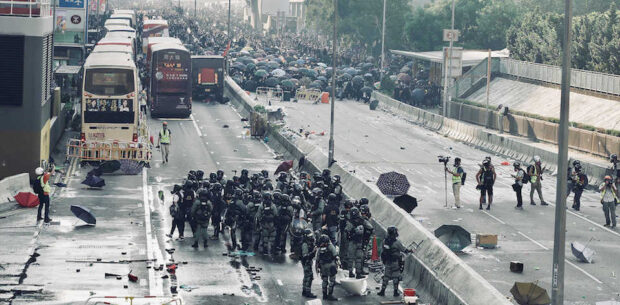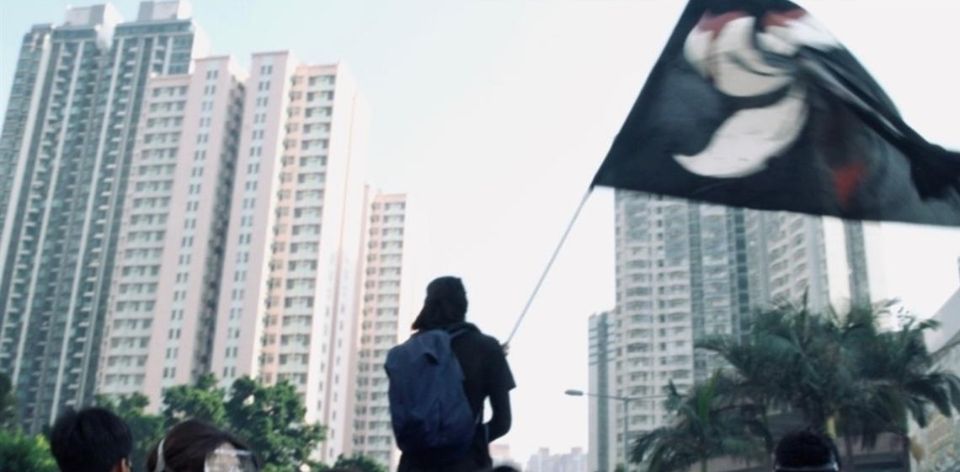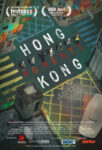“The worst time for my line of work since SARS,” laments a taxi driver at the start of Zhou Bing’s documentary. One can’t help but wonder how he’s feeling about how the rest of 2020 turned out.
Which is the point of HONG KONG MOMENTS, a film that takes snapshots of seven Hongkongers from different walks of life on three specific days. It’s a fly-on-the-wall approach, following a pro-democracy protester, a shop owner, an EMT, two opposing politicians, a cop and the aforementioned cabbie.
While the current wave of protests have been sparked by the controversial extradition bill proposed by mainland China in 2019, they have exposed the tensions in the ‘one country, two systems’ approach that has been bubbling away since the handover in 1997. Zhou doesn’t spend any time explaining what the Umbrella Movement is, instead choosing to simply drop us in the moment while we watch what happens.

From an outsider’s perspective – even for those of us who have kept a watchful eye on events unfolding in Hong Kong – Zhou’s film is the first to attempt an objective view of events. Through some gorgeously realised drone shots and interstitial photography, Zhou’s camera quite literally floats above this world for a bird’s eye view of the protests and backlash. At other times, Zhou simply contrasts the street clashes with life going on at Hong Kong’s famous Jockey Club.
This objectivity comes with a danger of being too centrist. The tea shop owner is harassed for being pro-police, while a well-disguised protester emphasises his “be water” approach and the futility of violence against police. Similarly, only the briefest of mentions is given to the legacy of British colonial rule. Yet on the flip side, Zhou is careful to show the aftermath of the protests. These are not images of wanton destruction or violent anarchists, but of citizens being tear-gassed while others attempt to wash their eyes.
“In a few years time, will Hongkongers still be Hongkongers?”
The film ends with a title card indicating that it is ‘dedicated to all Hongkongers,’ perhaps the most overtly political statement that Zhou makes in the film. It reflects the attitudes of at least one subject, who maintains that the “people in power don’t care about the indigenity of Hong Kong.” Which might be the strongest case that Zhou makes here: regardless of the opposing political views, there is a unique Hong Kong culture distinct from the mainland, one that needs investment to be maintained.
At the time of writing this review, it’s only been a matter of hours since a joint statement by the Foreign Ministers of Australia, Canada, New Zealand, and the United Kingdom, and the United States Secretary of State was issued. It expresses “deep concern at Beijing’s imposition of the new National Security Law, which is eroding the Hong Kong people’s fundamental rights and liberties.” In light of this international call for “genuinely free, fair, and credible elections,” Zhou’s film takes on new meaning. It chronicles a moment in time, and only history will show us where that leads.
2020 | Hong Kong, Germany | DIRECTOR: Zhou Bing | WRITER: Zhou Bing | DISTRIBUTOR: MIFF 2020 (AUS) | RUNNING TIME: 95 minutes | RELEASE DATE: 6-23 August 2020 (MIFF)






